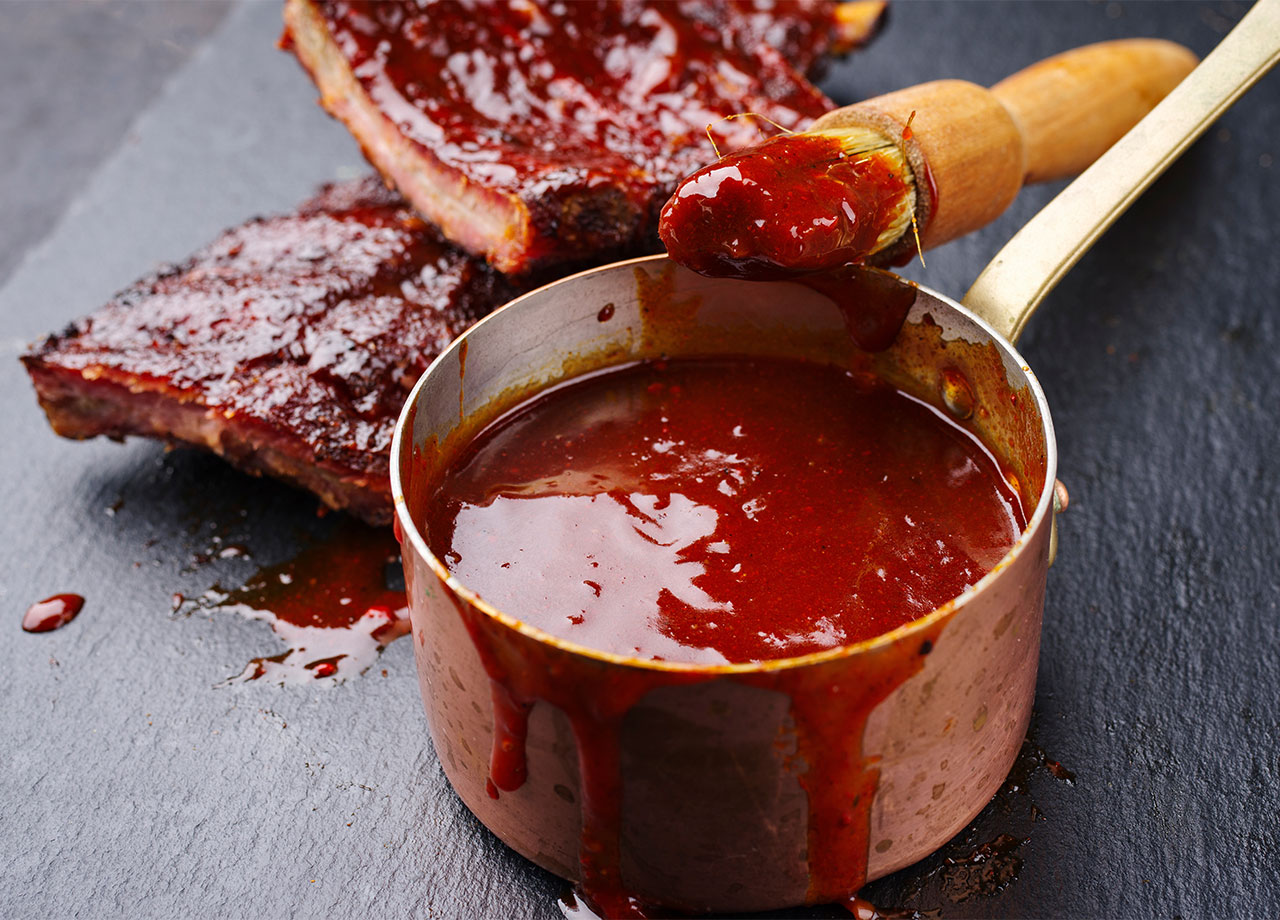
Barbecue Sauce
One serving of barbecue sauce, which is just one tablespoon, contains 6 grams of sugar. This may not seem like a lot, but when you think about how much BBQ sauce we slather onto foods like meats, it becomes more apparent that the sugar intake can add up with this tasty food.
Salad Dressing
Similar to BBQ sauce, a serving of honey mustard salad dressing contains 6 grams of sugar. Other dressings vary in their nutritional and sugar content, but most are calorie-dense and not truly giving back in terms of nutritional value. A better option is to make your own simply, quick olive oil and lemon or olive oil and vinegar dressing.
Sweetened Yogurt
But yogurt is healthy and contains probiotics, you may be arguing at this moment. You are right — but that doesn’t mean all yogurts are equally healthy. Choosing pre-sweetened yogurts that contain flavors or fruit at the bottom can add as much as 16 grams of sugar per serving to your day. Choose plain Greek yogurt instead and add your own fruit for a sweet kick.
Baked Beans
Beans are another really healthy food packed with nutrients like fiber that has been hijacked and made into something very sugary, but admittedly delicious: baked beans. One serving of baked beans has 13 grams of sugar.
Energy Drinks
We associate energy drinks with workouts, electrolytes, and all things good. But the average energy drink has 29 grams of sugar per serving — if you compare that to the amount of sugar in one can of cola, which is 39 grams, you’ll see there isn’t a massive difference.
Cereal
Eat a good breakfast for energy — these words linger in many of our minds. Since cereals are marketed as a fast, easy, and nutritious breakfast option, it makes sense that they are on your grocery list each week. But one serving of Frosted Flakes cereal contains 11 grams of sugar. And there are many more examples of cereals that don’t contain words like “frosted” in their name that you’d think are healthy, but are filled with sugar, too.
If you love eating cereal and refuse to give it up, reading nutritional labels before purchasing them can help you make lower-sugar choices.
Peanut Butter
Peanut butter is a tricky one — if you choose a brand without added sugar, you can benefit from its protein and vitamin and mineral content, which includes magnesium and vitamin B6. But some brands add sugar to their recipe for a more alluring taste, and this is where those sugars can add up.
Frozen Fruit
Purchasing frozen fruit to make smoothies and other recipes is a smart way to save money if you think fresh fruit will go bad before you get to use it. But read labels carefully because some brands add sugar to their frozen fruit.
Ketchup
One tablespoon serving of ketchup is almost 4 grams of sugar, and doesn’t really provide much back in terms of nutritional benefits. For many of us, our burgers and French fries feel naked without ketchup, so we aren’t suggesting ditching it — just being aware that less is more with this condiment.


